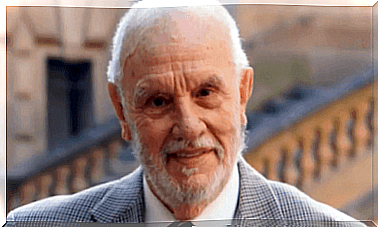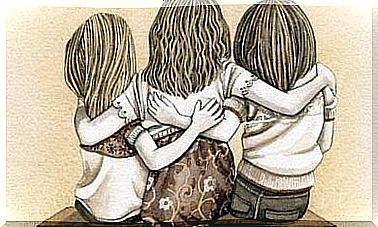Jealousy And Passive Aggression: Silent Wear And Tear

Jealousy and passive aggression usually go hand in hand. These dimensions are, from a psychological point of view, types of emotions that are as complex as they are deadly. They combine fear of abandonment, a feeling of humiliation and anger.
So, feeling jealousy is something that as we know does not depend on the age, gender or culture of the person. And the situations caused by this jealousy can be as dangerous as they are destructive.
In Shakespeare’s works, one thing that particularly grabs attention when we study them more closely is the author’s ability to portray all that kaleidoscope of emotions, traits, and situations that so well define l ‘To be human. Thus, one of his most striking legacies is that of Othello, with the character as singular as Machiavellian of Yago.
The very skillful and malicious servant of Othello made the latter believe that Desdemona, his wife, was unfaithful to him. Othello has lost his mind. Yago symbolizes that obsessive and pernicious internal voice that feeds the fire of jealousy.
It perfectly represents our obsessive and suspicious mind, a mental echo that only brings jealousy to life. The latter then gradually clears a path persistently and makes us fall into the precipice of fatality.
William Shakespeare considered Yago to be one of his most decisive characters. He dedicated about 1097 lines to him, which is almost equivalent to those that Hamlet or Richard III had.
Jealousy is, as Michel de Montaigne said, a disease of the mind and our worst enemy.

The internal voice that devours
Jealousy and passive aggression are two closely related dimensions, which revolve around a very concrete fact. Jealous people do not show this emotion in a direct and open manner.
In other words, no one approaches their spouse to indicate with the utmost assertiveness that they feel offended when the other talks with other people. He-she doesn’t tell him that he-she gets angry and humiliated when he-she smiles and spends time with others.
Instead, the person frequently exhibits passive aggression. Instead of using words, she uses reproaches, hidden blackmail, cryptic threats, continuous contempt, indirect punishments via prolonged silence, marked indifference …
This type of aggression is first served “cold” but can sometimes mature until it drift towards a more active and, of course, harmful aggression.
Let’s take a closer look.
Jealousy and alter ego
William Shakespeare portrayed one thing perfectly with the characters of Yago and Othello. Jealousy resonates inside a person like an alter ego, a voice outside our being that settles down and sequesters us.
This figure fuels the fear of being abandoned and betrayed. It injects us with a dose of mistrust, alerts us to non-existent dangers and deceptions, makes us see signals everywhere and makes us believe in completely disjointed ideas that suddenly seem reasonable to us.
Thus, studies such as the one carried out by Dr. David DeSteno, of the University of California, tell us that this voice symbolizes the “threatened self”, that part of ourselves that feels vulnerable and which, little by little, ends by setting up passive-aggressive behaviors.

Jealousy and passive aggressiveness: genetic components of the human being?
Certain theories speak, indeed, of a genetic basis for this type of behavior. Jealousy and passive aggression create a type of dark logic that some of psychology and anthropology claim is in our genes. According to this point of view, the human being would be the result of this evolution which is based on survival and reproduction.
Social competitiveness, added to the fear of being betrayed and being left alone, is a type of alarm that activates a whole series of emotions and thoughts. The mind becomes hypervigilant, obsessive, and dimensions like anger eventually take control. Behavioral aggressiveness is therefore emerging, with the obvious risk that it implies.
Managing jealousy and reducing it, is it possible?
The key to dealing with jealousy is to understand a very clear fact: Absolute and lasting loyalty does not exist. We could tell the jealous person that loving means trusting, that it is not synonymous with possessing, and that healthy affection does not involve anger, a need for domination, or hypervigilance.
However, sometimes we can find ourselves faced with behavior based on pathological jealousy. In this case, a whole series of disturbances linked to delusions appear. Psychological therapy then becomes essential. So when we ask ourselves whether jealousy can be controlled and lessened, a simple answer emerges: Every person is unique.
Therapy may focus on reducing controlling behaviors (such as looking at a spouse’s cell phone), disabling obsessive thoughts, and boosting self-esteem, in addition to the anxiety that derives from being overwhelmed. fear of abandonment.
The therapy requires, however, and more than anything, a clear will on the part of the patient: the desire to change. He himself must realize that jealousy is not compatible with a couple relationship. Let us not forget that.









